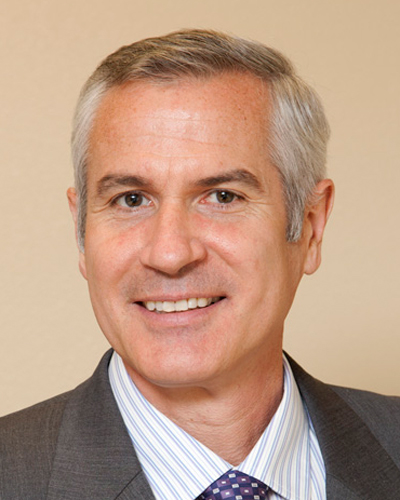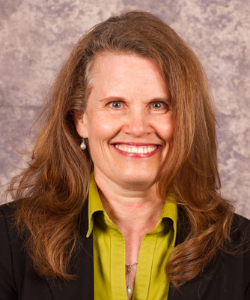Between the Cracks: Will essential health and human services survive "The Big One?"

Local nonprofits provide essential services including health care, housing, and mental health support for our most vulnerable residents. How well will these services hold up in Oregon after a major earthquake? Will people get the help they need when they need it most?
In 2018, a survey of local nonprofits found that only about a third of nonprofits have a plan for continuing their operations after an emergency. How can we work with the nonprofit sector to ensure that a plan is in place for the continuity of all critical services, including those funded by grants and provided by nonprofits?
Join us at Friday Forum as we discuss the research and share insights about what it will take to make sure we take care of each other when "The Big One" hits.
Panelists
 Grace L. Chikoto-Schultz is an assistant professor in the Department of Public Administration in the Mark O. Hatfield School of Government. She holds a master’s degree in public administration and a Ph.D. in public policy from Georgia State University-Georgia Institute of Technology. Some of her research focuses on nonprofit organization's financial health and disaster preparedness. She also has experience conducting real-time evaluations of international NGOs' early disaster response activities. Prior to joining Portland State University, she taught nonprofit-centered courses at the University of Wisconsin-Milwaukee for 8 years.
Grace L. Chikoto-Schultz is an assistant professor in the Department of Public Administration in the Mark O. Hatfield School of Government. She holds a master’s degree in public administration and a Ph.D. in public policy from Georgia State University-Georgia Institute of Technology. Some of her research focuses on nonprofit organization's financial health and disaster preparedness. She also has experience conducting real-time evaluations of international NGOs' early disaster response activities. Prior to joining Portland State University, she taught nonprofit-centered courses at the University of Wisconsin-Milwaukee for 8 years. Kerry Kozuki collaborates with and leads the Management Consulting and Services team at 501 Commons. He is responsible for overseeing the development and delivery of high quality management consulting and services, including information and referral services; management consulting; Springboard; Catalyst; human resources, organizational development, and leadership education; the Encore Fellows Program; the Five Elements Assessment; and other services in the organization’s management consulting portfolio. Prior to joining 501 Commons in 2016, Kerry’s career has largely been in hotel general management in Seattle, Portland, and Eastern Washington, focused on luxury hospitality. Some of his key skills include process improvement, organizational strategy and general organization operational excellence. He grew up in Williams Lake, BC, Canada, and completed his undergraduate degree at the British Columbia Institute of Technology. He later received his MBA at the University of Washington and gained his Six Sigma Black Belt from Villanova University.
Kerry Kozuki collaborates with and leads the Management Consulting and Services team at 501 Commons. He is responsible for overseeing the development and delivery of high quality management consulting and services, including information and referral services; management consulting; Springboard; Catalyst; human resources, organizational development, and leadership education; the Encore Fellows Program; the Five Elements Assessment; and other services in the organization’s management consulting portfolio. Prior to joining 501 Commons in 2016, Kerry’s career has largely been in hotel general management in Seattle, Portland, and Eastern Washington, focused on luxury hospitality. Some of his key skills include process improvement, organizational strategy and general organization operational excellence. He grew up in Williams Lake, BC, Canada, and completed his undergraduate degree at the British Columbia Institute of Technology. He later received his MBA at the University of Washington and gained his Six Sigma Black Belt from Villanova University.
 Christopher Voss currently serves as the director of emergency management for Multnomah County and has more than 20 years of experience in the field of emergency management, including more than 60 Emergency Operation Center (EOC) activations.
Christopher Voss currently serves as the director of emergency management for Multnomah County and has more than 20 years of experience in the field of emergency management, including more than 60 Emergency Operation Center (EOC) activations.
Mr. Voss previously served as the Director of the Montgomery County Maryland Office of Emergency Management and Homeland Security (OEMHS) and has also served as an adjunct professor at Montgomery College and the University of Maryland University College teaching Emergency Management, Homeland Security and Public Policy Leadership courses.
Mr. Voss received his Bachelor of Science from the University of Connecticut, a Masters of Arts Degree in Security Studies from the Naval Postgraduate School (NPS) Center for Homeland Defense and Security, and a Masters of Science in Environmental Technology from the New York Institute of Technology.  Jim White currently serves as the executive director of the Nonprofit Association of Oregon. He began this assignment in October of 2012. Jim is deeply committed to social change and has worked in the nonprofit sector both domestically and internationally for more than 20 years. He has a passion for affecting systemic change in the way that the public, private, and nonprofit sectors work together to support and strengthen civil society. He is specifically skilled on working to build alliances and partnerships with mission- and results-driven outcomes in mind.
Jim White currently serves as the executive director of the Nonprofit Association of Oregon. He began this assignment in October of 2012. Jim is deeply committed to social change and has worked in the nonprofit sector both domestically and internationally for more than 20 years. He has a passion for affecting systemic change in the way that the public, private, and nonprofit sectors work together to support and strengthen civil society. He is specifically skilled on working to build alliances and partnerships with mission- and results-driven outcomes in mind.
Moderator
 Dr. Anne Castleton is a continuity planner and emergency manager who has worked in more than 20 countries educating colleagues and communities about risk reduction strategies. She joined Portland Bureau of Emergency Management in 2016 to support and coordinate bureau- and city-level continuity of operations planning (COOP) and is delighted to say that all the city's 33 bureaus have continuity of operations plans and the city is just releasing its 2019 Citywide COOP Framework.
Dr. Anne Castleton is a continuity planner and emergency manager who has worked in more than 20 countries educating colleagues and communities about risk reduction strategies. She joined Portland Bureau of Emergency Management in 2016 to support and coordinate bureau- and city-level continuity of operations planning (COOP) and is delighted to say that all the city's 33 bureaus have continuity of operations plans and the city is just releasing its 2019 Citywide COOP Framework.
Before joining PBEM, she supported the Integrated Research on Disaster Risk Programme based in China. As Mercy Corps’ Director of Disaster Risk Reduction, she coordinated the review and publication of Toward Resilience: A guide to disaster risk reduction and climate change adaptation and developed a companion e-learning course with the Disaster Ready Initiative. Before being lured into international development and disaster risk reduction, Anne spent a decade as a project manager in the private sector (technology and pharmaceuticals).

